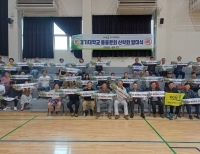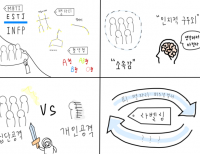COVID-19 first broke out in Wuhan, China in December 2019 and then spread throughout China and around the world. The World Health Organization (WHO) said on January 9, 2020 that the cause of the pneumonia was a new type of coronavirus. On February 11, 2020 corona was named by the International Committee on the Classification of Viruses. Vaccination of COVID-19 has started since early 2021, and keywords related to vaccines are receiving a lot of attention. Among the words related to vaccines, such as vaccination order, stability, manufacturer, and the number of vaccines secured, the news related to the stability of vaccines are drawing attention. There are many rumors about the stability of the vaccine, so only objective information should be accepted from the sea of information. Therefore, as it is related to one’s health, one should get vaccinated after being informed about the vaccine.
Korea also started vaccinating against coronavirus on the 26th of February 2021. It is the 104th country in the world to begin vaccination and the lowest among OECD countries. Currently, people in the medical industry and those at high risk of exposure to coronavirus are given preferential treatment. A total of six groups will be vaccinated in the second quarter of 2021. They are classified as nursing hospitals and facilities, people and workers in vulnerable facilities of COVID-19, senior citizens aged 65 or older, schools and care spaces, chronic patients, health care providers and social essential people. Twelve million vaccinations are scheduled for the first half of the year. The government has purchased about 5.6 million doses of the vaccine from Covax, AstraZeneca, Pfizer, Janssen, and Moderna manufacturers and will supply it sequentially in Korea. Currently, only two companies, AstraZeneca and Pfizer, have begun vaccinations in Korea. As of March 24th, 700,000 people had completed the first round of vaccinations. They were vaccinated only using Pfizer and AstraZeneca.
One of these is a controversial type of vaccine. The AstraZeneca vaccine has more side effects than the Pfizer vaccine and is one of the most problematic vaccines. In particular, there are four main reasons why the vaccine from AstraZeneca has been criticized. First, the U.S. FDA approval is being delayed and the possibility of errors in the clinical trial process seems to have become a seed of distrust. FDA stands for Food & Drug Administration. It seems to have become more controversial because it is a trusted institution in the United States as an organization that sets safety rules for most vaccines, medical supplies, and drugs. However, the U.S. clinical trial results (announced on March 22) showed that the vaccine was 79 percent effective and 80 percent effective in those aged 65 or older. Secondly, it seems that the prejudice that the prevention rate of vaccines is not good was caused by the idea that AstraZeneca is 62 to 70 percent and Pfizer vaccines are 95 percent effective. AstraZeneca is right to say that the prevention rate is 70 percent, but there are reports that the prevention rate will rise to 90 percent if vaccinated twice. AstraZeneca should be used twice, so it is safe to say that the prevention rate is 90 percent. Thirdly, vaccinations were temporarily suspended in many European countries such as Italy, Germany, France, Spain, etc. due to the controversy that AstraZeneca’s side effects in Austria caused death by blood clots. However, the results of the clinical trial showed that there was no problem with thrombosis. The World Health Organization (WHO), the European Medicines Agency (EMA) and the Korean Committee for Vaccination announced that there is no link between the AstraZeneca vaccine and thrombogenesis. Finally, the rumor that AstraZeneca is shunned in Europe seems to suggest that AstraZeneca has more side effects. However, the proportion of vaccinations made by AstraZeneca was not low in Spain at 44 percent and Germany at 34.2 percent (as of March 8).
Nonetheless, the controversy about the stability of the AstraZeneca vaccine is still valid. European countries have halted AstraZeneca’s inoculation, taking issue with the thrombotic reaction. However, thrombogenesis is not limited to the AstraZeneca vaccine. According to data from the UK Medicines and Health Care Products Agency (MHRA), two major diseases related to blood clots, septic embolism and deep vein thrombosis were reported in the Pfizer vaccine, with 15 cases and 8 cases, respectively, of 10.7 million vaccinations, a total of 23 cases. The AstraZeneca vaccine reported a total of 27 cases among 9.7 million people, 13 and 14, respectively. According to these reports, there were 2.15 cases per million with the Pfizer vaccine and 2.78 cases with the AstraZeneca vaccine, with no statistically significant differences. It is also said that the British use the AstraZeneca vaccine much more among the elderly, and as a result the rates are almost the same when age is adjusted. The European Medicines Agency (EMA) and
the World Health Organization (WHO) do not recognize the connection between vaccination and thrombosis. The Korea Centers for Disease Control and Prevention (KCDC) is also recommending vaccinations.
Since we are in the early stages of vaccination in Korea, the process is not yet stable. Some public opinion does not have enough confidence in vaccination and therefore some refuse or do not wish to be vaccinated. Muscle pain, swelling, skin flare, fever, nausea, fatigue, and headaches are commonly known as abnormal reactions after vaccination. These symptoms are known to go away naturally after two to three days. However, this abnormal reaction is also one of the factors that makes many people nervous. Most professional organizations and experts recommend vaccinations even if there is such anxiety. It will take a lot of time in the future for herd immunity to be created. Vaccination is the beginning of the end of COVID-19 and will be the first step toward daily recovery.
Planning Editor•KIM DA HUN•ekq8458@kyonggi.ac.kr
76th Cub Reporter•JEONG SEUNG HYE•nora28@naver.com
 Freedom Given to Youth: An Opportunity for Choice or a Burden of Constraint?
“Are we truly free today?” Classical literature is far more than time-honored stories. It offers profound insights into human nature and society that transcend time, remaining a valuable resource for examining the challenges our world faces today. This article will draw on George Orwell’s 1984 and Charles Dickens’ Oliver Twist to explore the contemporary issues of youth housing and the emergence of a surveillance society ...
Freedom Given to Youth: An Opportunity for Choice or a Burden of Constraint?
“Are we truly free today?” Classical literature is far more than time-honored stories. It offers profound insights into human nature and society that transcend time, remaining a valuable resource for examining the challenges our world faces today. This article will draw on George Orwell’s 1984 and Charles Dickens’ Oliver Twist to explore the contemporary issues of youth housing and the emergence of a surveillance society ...

 [단신] 산악회, 본교 동문의 버팀목이 될 수 있도록
[단신] 산악회, 본교 동문의 버팀목이 될 수 있도록
 [사회메인] 노인 인구 1,000만 시대, 준비 없는 사회가 불안해
[사회메인] 노인 인구 1,000만 시대, 준비 없는 사회가 불안해
 [네컷만화] 라벨링 문화
[네컷만화] 라벨링 문화
 [진리터] 결국 우리 모두 돌아볼 것이니
[진리터] 결국 우리 모두 돌아볼 것이니

 목록
목록










